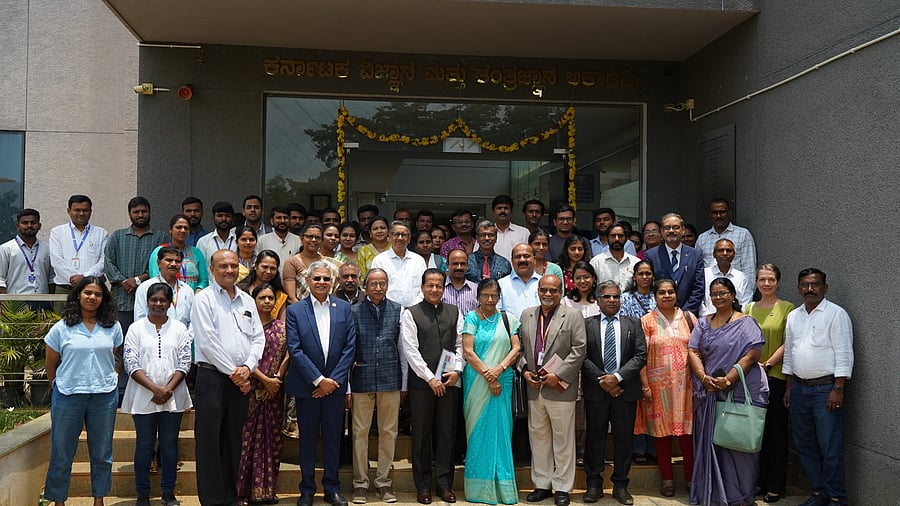
The Karnataka Science and Technology Academy (KSTA) is hosting a three-day national conference 'Antimicrobial Resistance: Strategies for Prevention and Alternatives'.
Credit: X/@kstacademy
Bengaluru: Political will and inter-organisational, inter-departmental collaboration are key to preventing an antimicrobial resistance (AMR) crisis in the country, experts observed at a national conference on Wednesday.
The Karnataka Science and Technology Academy (KSTA) is hosting a three-day national conference titled ‘Antimicrobial Resistance: Strategies for Prevention and Alternatives’ at its auditorium. It began on Wednesday.
Dr Anuj Sharma, Technical and Team Focal Point for AMR at the WHO Country Office for India, explained that AMR not only threatens public health through increased healthcare costs, longer hospital stays, and higher mortality, but also undermines medical advancements and affects global GDP.
“AMR is everybody’s business. Antimicrobial resistant bacteria are part of the human and animal microbiome and are transmitted through food and water. People need to work together to prevent its impacts,” he said.
Citing Kerala’s example — which introduced a toll-free helpline for people to report pharmacies selling antibiotics without prescriptions — he said, “This worked very well because of strong political will, collaboration, and public awareness. This must happen across the country.”
Dr Raghavendra Bhatta, Deputy Director General (Animal Science) at the Indian Council of Agricultural Research (ICAR), New Delhi, stressed the need for research institutions, organisations, and the government to address critical data gaps regarding antibiotic use in humans, livestock, sewage, and drinking water. He also called for a clear protocol for data sharing and strengthened AMR surveillance.
“We also need to assess the economic impact of diseases and deaths caused by AMR. Additionally, data on expired medication and over-the-counter antibiotic sales must be collected,” he said.
NS Boseraju, Minister for Science and Technology, stressed the need for collective, sustained efforts to tackle what he termed a “silent epidemic”. He spoke on the role of the India AMR Innovation Hub in this fight and encouraged researchers, clinicians, and policymakers to work together for solutions.
"The fight against AMR is also a moral obligation. We must meet this challenge effectively with our collective knowledge and commitment. In doing so, we reaffirm our dedication to public health, food security, and sustainable development,” he added.
